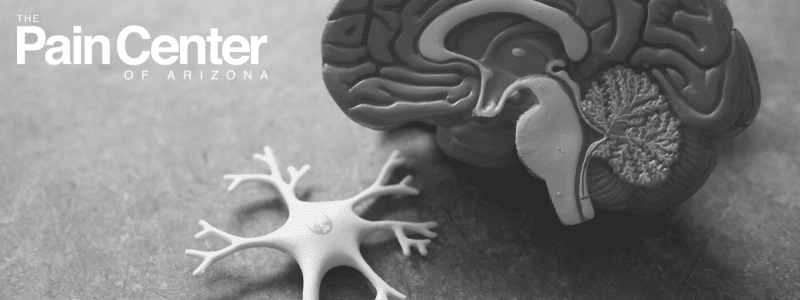
Electromyography (EMG) and nerve conduction studies measure the electrical signals sent through our nerves and muscles. As you might anticipate, doctors can identify disruptions in these signals that may cause nerve or muscular pain and discomfort.
In this blog, we’ll be covering:
- What is a nerve conduction test?
- How painful is an EMG nerve conduction study?
- What conditions can an EMG diagnose?
- How does an EMG detect nerve damage?
- What happens if EMG is abnormal?
- How do I prepare for the tests?
- How long does a nerve test take?
What is a Nerve Conduction Test?

While an EMG test focuses on the electrical activity in your muscles, a nerve conduction study measures the speed and strength of electrical signals in your nerves. Both tests provide a broad picture of your body’s electrical traffic and whether any disruptors indicate a condition or disorder causing your pain.
Those who need EMG and nerve conduction tests are experiencing symptoms that may include muscle weakness, tingling or numbness, cramps, spasms, twitching, and even muscle paralysis.
How Painful is an EMG Nerve Conduction Study?
Besides some minor pain, cramping, and even a tingling sensation, EMG and nerve conduction studies are minimally invasive. An EMG test will require inserting a needle electrode into your muscle. In contrast, nerve conduction studies simply tape or paste stimulating electrodes to your muscles and send a mild electrical pulse throughout your body.
What Conditions Can an EMG Diagnose?
Some of the conditions an EMG and nerve conduction studies can show include:
- Amyotrophic lateral sclerosis (ALS)
- Carpal tunnel syndrome
- Cervical spondylosis
- Charcot-Marie Tooth disease
- Diabetic neuropathy
- Guillain-Barré syndrome
- Herniated disc
- Lambert-Eaton syndrome
- Muscular dystrophy
- Myasthenia gravis
- Peripheral neuropathy
- Polymyositis
- Radial nerve dysfunction
- Sciatica nerve dysfunction
How Does an EMG Detect Nerve Damage?

An EMG detects damage to your nervous system by inserting a thin electrode needle into your muscle while monitoring electrical activity and proceeding with results on an oscilloscope (monitor). You will be asked to contract or relax your muscles throughout the procedure.
What Happens if EMG is Abnormal?
If your EMG reading is abnormal, your electrical activity will consist of odd wave shapes and patterns. Your body produces a baseline electrical current throughout, which becomes abnormal during muscle contraction.
Abnormal EMG results are usually signs of nerve dysfunction, muscle injury, and muscle disorders, including:
- Pinched nerves
- Carpal tunnel syndrome
- Stiff muscles
- Peripheral neuropathy
- Muscular dystrophy
Identifying abnormalities with an EMG enables your doctor to diagnose and treat your current ongoing condition accurately.
How Do I Prepare for the Tests?
Considering doctors will need easy access to all your muscles in the test area, you should wear loose, comfortable clothing, especially if you need to switch to a hospital gown.
Since electrodes will also be attached to the surface of your skin for emitting electrical current, keep your skin clean and avoid using lotions, body creams, perfume, or cologne for a couple of days before your test.
Let your healthcare provider know if you have a pacemaker or cardiac defibrillator. There will need to be special accommodations made for your particular procedure.
How Long Does a Nerve Test Take?
An EMG test may take 30 to 60 minutes to complete, whereas a nerve conduction test may take 15 minutes to more than an hour, depending on the scope of your test.




